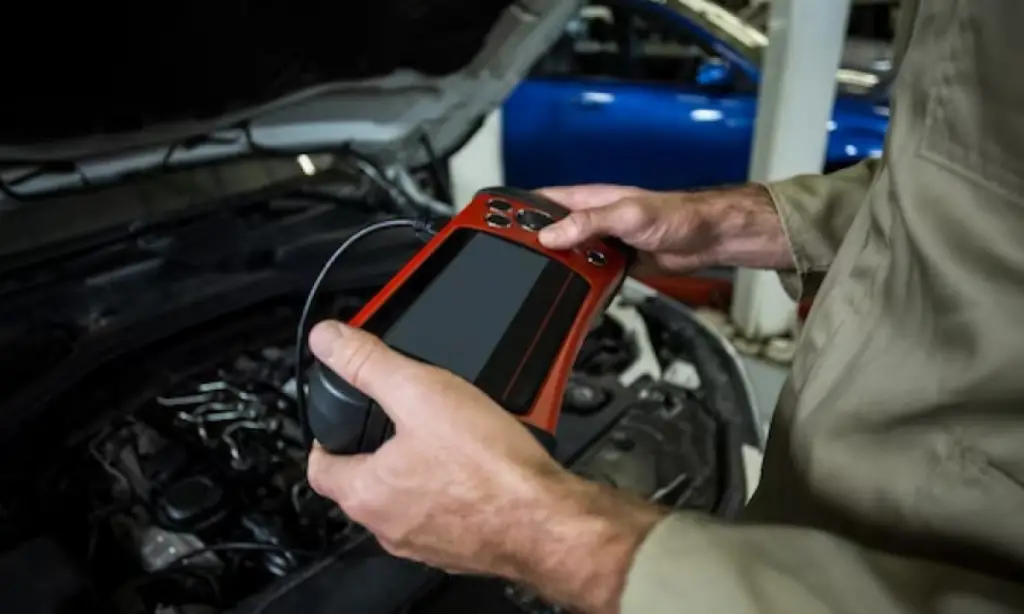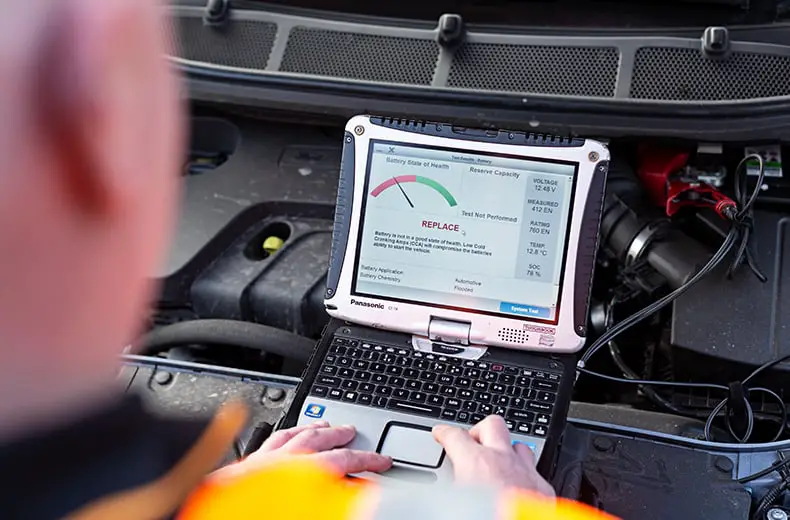Most modern cars rely heavily on computers to control everything from the engine to accessories like power windows and locks. These vehicle control modules use battery power to stay active and retain information in their temporary memory. When you disconnect the battery, even temporarily during a battery change, it can cause these computers to lose their keep-alive memory and reset.
How Long to Leave Battery Disconnected to Reset Computer
The length of time needed to fully reset a car’s computer by disconnecting the battery depends on the make and model. In general, leaving the battery disconnected for about 15 minutes is the recommended minimum. But it could take up to 24-48 hours for all car modules to completely reset in some cases.
The main vehicle control modules like the powertrain control module (PCM) and body control module (BCM) may reset fairly quickly once the battery is disconnected. But there are other modules like the radio, climate control, security system and others that may take longer to drain their keep-alive memory reserves.
It’s a good idea to refer to your owner’s manual or check with your dealer for the recommended reset time for your specific vehicle after battery disconnection. Some automakers provide this battery disconnect reset period.
Do I Need to Reprogram Modules After Battery Replacement?
In many cases, simply disconnecting the battery to reset a vehicle’s electronic control modules is all that’s needed when replacing the battery. The modules will initially show warning lights when the battery power is restored, but should automatically re-learn their functional settings during operation.

However, some control modules do require re-programming or re-initialization after a battery replacement due to data loss. Common modules that may need re-programming include:
- Engine control module (PCM)
- Transmission control module
- Tire pressure monitoring system (TPMS)
- Chassis control modules
- Radio/infotainment system presets
- Security/anti-theft system
Vehicle warning lights may remain on if certain modules haven’t been reset properly. A professional scan tool is usually required to properly re-program or re-initialize modules that don’t re-learn automatically.
Other Considerations After Battery Disconnection
Beyond just resetting computers, disconnecting your car’s battery can cause some other issues you’ll need to address:
- You’ll likely need to re-set your clock, radio presets, seat memory settings, TPMS system and other customized settings
- The engine may experience a rougher idle or require several drive cycles to properly re-learn operational settings
- Anti-theft or security systems may need re-setting or re-programming
- The transmission may temporarily revert to a failsafe driving mode
- If equipped, the remote start or keyless entry system may need to be re-synchronized
Properly resetting modules and re-learning strategies after a battery disconnect eliminates warning lights and potential drivability issues. It’s recommended to consult your owner’s manual or automotive technician for any special steps needed for your specific make and model vehicle.
Checking for Software Updates
Whenever you disconnect your car’s battery or have major electrical work done, it’s a good idea to have the vehicle’s software checked for any available updates from the manufacturer. As control modules are reset, they may need to be reflashed with the latest calibration software to restore full functionality.
Many automakers have made updates available through official channels like the dealer service department. These update packages can reprogram modules to fix glitches, bugs, or operational issues. Updating software ensures everything is working as intended after a battery disconnect event.
Maintaining Proper Battery Connections
Proper battery cable connections are critical for control modules to operate correctly. If the battery ground cable has excessive resistance or corrosion at the connection point, it can cause issues with modules not receiving a clean reference voltage.
When replacing the battery, always use a battery terminal cleaning tool to remove any corrosion and ensure tight cable connections. Applying a battery terminal protector spray can also help prevent future corrosion buildup.
On some vehicles, a loose or inadequate engine ground strap could be the source of electrical issues after a battery replacement. Make sure the engine ground connections are clean and tight if you experience any module problems.
Battery Monitoring Sensor Resets
Many newer vehicles have battery monitoring sensor systems that keep track of the battery’s state of charge, age, and condition. When you replace the battery, these systems will need to be reset or the sensor relearned to the new battery.
Not resetting the battery monitoring system could lead to premature wear of the new battery or incorrect charge/discharge indicators. The relearn process is often initiated through a manual procedure using the driver information center. Your owner’s manual will outline the steps required.
Hybrid and Electric Vehicle Considerations
The high-voltage battery packs found in hybrid and plug-in electric vehicles contain supplemental sensors and control modules that may also need to be reset or recalibrated after a 12V battery change.
For example,
Toyota’s hybrid battery control modules are designed to go into a sleep mode after a 12V battery disconnect, requiring a reactivation procedure through a manual relearn mode. Consulting a certified technician is highly recommended for hybrid/EV battery service to ensure all systems are properly reset and operating safely.
With most vehicle electrical systems relying heavily on computer controls, replacing the battery requires some due diligence to ensure everything is properly reset and relearned. Taking the time to address any module resets or reprogramming can prevent driveability issues and get your vehicle operating properly after a battery change.
The Bottom Line
While disconnecting the battery is sometimes necessary for repairs or replacement, it can cause issues with your car’s computer systems that require special attention.
Also Read:
- How Long Does It Take to Change Brake Pads?
- The Real Cost of Transmission Service in the United States
- The Complete DIY Guide to Changing Your Transmission Oil
- Understanding Car Differentials – The Unsung Heroes of Your Vehicle
Make sure to allow enough time for a complete reset, and be prepared to take your car to a professional for any re-programming required to get all systems operating properly again.


[…] Resetting Your Car’s Computer After a Battery Change: What You Need to Know […]